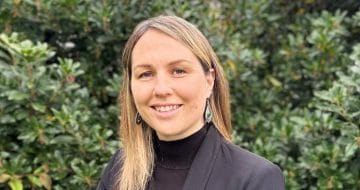Anne Robertson reflects on her journey from nurse to solicitor, and now Undergraduate Programme and Student Lead at The University of Law’s Leeds campus, ahead of a special virtual career changer event on 23 May

Law is an increasingly sought-after field among those seeking a career change, and, as a result, attracts individuals from a diverse range of backgrounds.
Ahead of a special virtual event aimed at helping prospective career changers enter the legal world, Legal Cheek Careers sits down with Anne Robertson, the Undergraduate Programme and Student Lead at The University of Law’s Leeds campus.
In the Q&A below Robertson reflects on her journey from nurse to solicitor and what she learned along the way.
Can you briefly tell us about your background and your role at ULaw Leeds?
I’m originally from Hampshire and moved to Sheffield in 1993 to study for a BA (Hons) Nursing Studies at Sheffield Hallam University, qualifying as a registered adult nurse in 1996. In 2001 I left nursing and studied the MA Law and LPC at The University of Sheffield. I qualified as a solicitor in 2007, specialising in civil litigation and family law.
After a career break to start my family, I returned to work in 2011 specialising exclusively in clinical negligence claims, both claimant and defendant.
I left legal practice in 2021 to become a tutor at the Leeds campus of ULaw. I have taught Civil Litigation subjects across all courses, undergraduate and post-graduate. In May 2022 the opportunity arose to take up the position of Undergraduate Programme and Student Lead. I still teach but I am also responsible for ensuring the Undergraduate Programmes are delivered appropriately at campus level, and that the students enjoy their time with us.

Why did you decide to train and qualify as a solicitor? Did your background in nursing help in legal practice?
I had never considered any non-medical careers. However, during my nursing degree we studied a module of law and Donoghue v Stevenson hooked me. I had never been so excited to study something. This interest did not leave me and, a few years later, I bumped into someone I had trained with who was studying the MA Law at Sheffield. At the time I was struggling to decide the direction my nursing career should take. I researched this further and visited the campus and knew that was the next step for me.
As a clinical negligence solicitor my nursing background helped me immeasurably: understanding medical notes, the pressures staff were under, the claimants’ perspective. However, it also gave me organisational skills, the ability to work under pressure and the ability to talk to clients about sensitive subjects in an appropriate manner.
What did you enjoy most (and least) about your time in legal practice?
The best thing about my time as a clinical negligence solicitor was, when working for claimants, getting answers for them. Even where we had obtained an unsupportive expert report, clients were grateful someone had taken them time to investigate the matter for them and were often relieved that no negligence was involved.
The worst part of my time in legal practice was, when working for a defendant firm, dealing with dedicated professionals who had made a mistake. Healthcare professionals enter that field because they want to help not harm.
What advice can you share with those coming to law following a successful career in another industry?
I remember that one of the best pieces of advice I received was from a clinical negligence lawyer when I was on a vacation scheme, who warned me not to pigeon-hole myself just because of my nursing background. So I took every opportunity to try different areas. Although I did ultimately specialise in clinical negligence, by the time I did I had a solid grounding in other areas of law, contentious and non-contentious.
More generally, you have a lot of skills to bring, but also a lot to learn. It can be difficult to be managed by people a lot younger than you, but remember that they will have put in the time to deserve that position, so look at their experience rather than age.
Many career changers often find themselves juggling work with job applications or further study. Do you have any top tips?
You have to be organised. Set yourself realistic goals and, if they slip as some inevitably will, do not be hard on yourself. You are playing the long game.
You studied in Sheffield and have worked in various northern cities, including most recently in Leeds. What is it about the North that appeals to you?
Everything! I have now lived and worked in Yorkshire for 30 years. The scenery, the cost of living, the people. Leeds is great for legal jobs and is attracting many businesses that were previously based in London. I have considered moving back South at various points over the years, but still struggle to find a reason to!
Anne Robertson will be speaking at ‘How to get into law as a career changer — with Bryan Cave Leighton Paisner, Pinsent Masons and ULaw’, a virtual event taking place Tuesday 23 May. You can apply to attend the event, which is free, now.
About Legal Cheek Careers posts.



